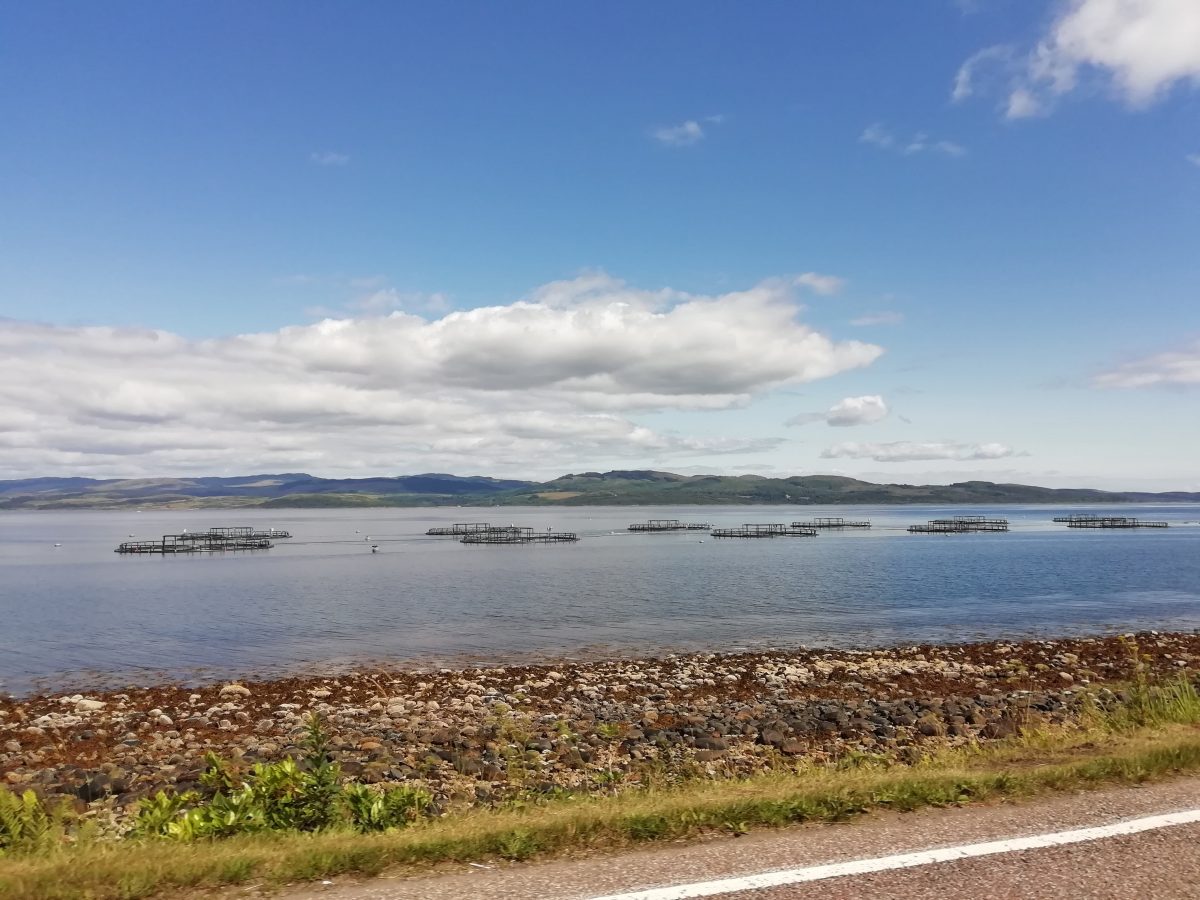 Scottish salmon is the largest food export from both Scotland and the UK, with 94,300 tonnes exported to 54 countries in 2019. Of these the biggest 6 export markets are France, USA, China, Ireland, Taiwan and Germany in descending order[1]. It is a growing industry and, in theory, a prime investment prospect.
Scottish salmon is the largest food export from both Scotland and the UK, with 94,300 tonnes exported to 54 countries in 2019. Of these the biggest 6 export markets are France, USA, China, Ireland, Taiwan and Germany in descending order[1]. It is a growing industry and, in theory, a prime investment prospect.
Fidra attended a meeting for investors in Scottish salmon and heard strong messages from the industry about Scottish salmon farming needing to increase digitisation, transparency and environmental sustainability. A representative from an investment company (who was not yet involved in the salmon farming industry but attending to find out more) was interested in our views with regard to the long-term viability of the industry, but was not fully aware of the environmental impacts it could have.
With the present increased awareness of the natural environment and the pressures on it, investors need to ensure their investments are having minimal impact on our unique ecosystems. Scottish salmon farming, and in particular the ‘grow out’ phase using open net pens in lochs and estuaries, can have significant impacts on the surrounding marine environment. The report from the Scottish Parliament’s Rural Economy and Connectivity (REC) Committee inquiry had 65 recommendations, the majority of which were on the environmental impact of the Scottish salmon industry, from chemical treatments to the waste products of the fish[2].
Fidra is asking investors in the Scottish salmon industry to engage the management teams of the producers to address urgently three key areas:
- Increased transparency and traceability in the Scottish salmon supply chain.
Increased traceability and transparency in the supply chain of Scottish salmon is an important prerequisite for positive change across the industry. Steps required include:
- development of traceability programmes that allow labelling of goods at point of sale with information such as name of farm and certification. For example, the use of the IBM’s platform (https://www.ibm.com/blockchain/solutions/food-trust) which couples barcode/QR code on packaging with an information platform;
- development of sustainability dashboards for individual companies, recording data at farm level (e.g. [1]https://dashboard.huonaqua.com.au/, [2] http://dashboard.tassalgroup.com.au/, [3] https://www.cermaq.com/wps/wcm/connect/cermaq/cermaq/our-sustainable-choice/asc-dashboard/)
- publication of 3rd party audits from certification schemes, as already undertaken by the Aquaculture Stewardship Council (ASC). At present, this is not done by any company in Scotland.
- farm level reporting of compliance with the Controlled Activities Regulation (CAR) licence issued by the regulator, the Scottish Environment Protection Agency (SEPA), including details of failures and resulting penalties or action
- Operational best practice
In addition to increased transparency, a commitment to best operational practices is urgently required. These include:
- across the board certification of farms by best practice schemes such as ASC, GLOBAL G.A.P., RSPCA and Soil Association (organic);
- a concerted move to use alternatives to forage fish sources of omega 3 in feed, such as algal oil or fish processing waste;
- increased innovation, especially digitisation and automated monitoring of environmental parameters, such as automated monitoring stations sending information to a central, publicly accessible platform;
- awareness of and implementation of the REC Committee’s recommendations and statutory obligations, including how recommendations are being addressed. Specifically, to solve current environmental issues before expanding the industry, such as those associated with sea lice, disease, medicine use, waste and deterring marine predators.
- Broader environmental impact requires immediate action
Further to the areas highlighted by the REC Committee, and parameters covered by current regulation, Scottish salmon companies also need to address the following highly pertinent issues:
- the lack of publicly accessible information on acoustic deterrent devices (ADDs), used to deter marine predators, which are currently unregulated and unrecorded, specifically make and specifications of ADD (i.e.frequency it operates at), positions and frequency of use;
- plastic use and waste, for example through policies on responsible sourcing, i.e. products made or recycled products, policies on responsible disposal, i.e. recycling (including requirement of suppliers to remove and recycle equipment, monitoring of plastic use and waste, including microplastics, research/sourcing into alternatives to plastic, and reusable/recyclable replacement of single use plastics;
- climate change awareness and mitigation, through policies to show awareness of climate change impacts (i.e. increased water temperatures and salinity, algal blooms, disease, sea lice), processes in place to mitigate impacts (i.e. larger smolts, early harvest, algal bloom tracking, sea lice and disease prevention (deeper nets/higher flow/offshore siting) planning and review processes/policies for dealing with climate change impacts, including precautionary actions.
Fidra sincerely hopes investors share these concerns and use their influence to ensure the Scottish salmon farming industry addresses them. We’ll be working with investors to draw attention to the industry’s challenges and the action that needs to be taken to minimise environmental impacts, engaging on the above points by contacting individuals by letter .
[1] https://www.scottishsalmon.co.uk/facts/business/scottish-salmon-exports-explained
[2] https://digitalpublications.parliament.scot/Committees/Report/REC/2018/11/27/Salmon-farming-in-Scotland#Summary-of-conclusions-and-recommendations
Tags: acoustic deterrent devices, aquaculture, Atlantic salmon, REC Committee, Scottish Parliament, Scottish salmon farming, supply chain, sustainability dashboard, traceability, transparency

